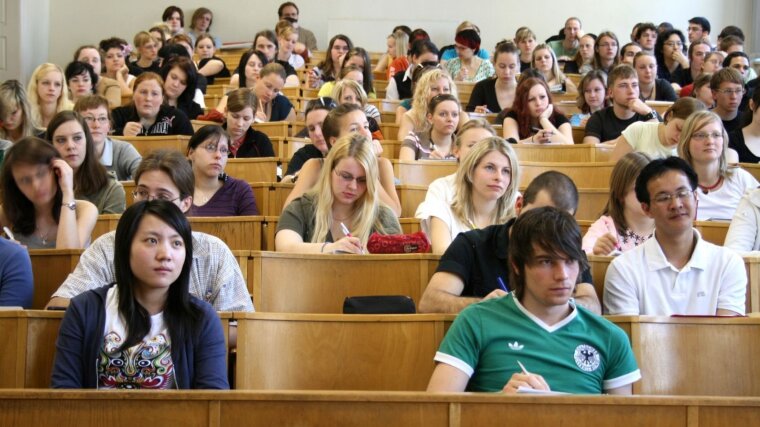
At the Institute of Psychology in Jena, excellent research is the foundation for our up-to-date, international teaching. Various cooperation and evaluation projects with industry, hospitals, practicioners, and non-profit organisations increase the applied perspective of our research and teaching. Through combining excellent research and its application with internships and qualification theses, many of our graduates are immediately led into the job and research areas they aim at. Internal optimisation and external quality control are carried out in order to continuously improve the quality of research and teaching.
short description
The master’s programme at the Institute of Psychology prepare students for various careers in research, science, health, social services, education, and industry. For this purpose detailed scientific and methodological knowledge is imparted as well as qualifications relevant for professional and research practise. The master programme comprises a common methodological component and a course specialisation. The common component focuses, among other things, on knowledge and competence in diagnostics, methods of evaluation research, and research synthesis. The course specialisation options include:
The course specialisation Cognitive Psychology and Cognitive Neuroscience imparts practical and methodological knowledge in the innovative and interdisciplinary field of neuroscience. This specialisation focuses on research methods of experimental psychology as well as methods of modern neuroscience. Also, practical applicability of the knowledge, for example, in the field of human engineering, is considered. Many courses are held in English.
The course specialisation Psychology in Employment, Education and Society attends to experience and acting in social, institutional and organizational contexts. The imparted qualification relates to human behaviour in or between groups in industry, educational or other non-profit-institutions.
The course specialisation Abnormal Psychology, Psychotherapy and Health offers a qualification that covers a broad spectrum of basic scientific knowledge in the field of abnormal psychology (consulting, rehabilitation, prevention). The paradigms, methods and results of bio-psycho-social research are given consideration with utilization in different contexts in mind.
The master degree in psychology is a necessary qualification for further postgraduate education (e.g. psychotherapist, studies for a PhD).
curriculum
The study program comprises 4 terms (2 terms per year). 120 credit points are to be achieved altogether (1 credit point corresponds to a workload of 30 hours).
The study program contains a general part and one of the following course specialisations:
- Cognitive Psychology and Cognitive Neuroscience
detailed information in englishpdf, 977 kb - Psychology in Employment, Education and Society
overview
detailed information - Abnormal Psychology, Psychotherapy and Health.
detailed information
The study program is structured in modules, consisting of lectures, seminars, tutorials, exercises, independent studies and examinations.
application
Students with an undergraduate degree including at least three years of psychology coursework can be admitted to the psychology master’s program.
Good knowledge of the German language, English language, Biology and Mathematics are to be proved either by good grades in the final school exam or in a university-entrance diploma or appropriate proficiency examinations. We expect from all applicants good skills in logical and mathematical thinking and a good knowledge of basic statistics.
Non-German students either must have passed the Deutsche Sprachprüfung für den Hochschulzugang (DSH-2) or choose the study focus Cognitive Psychology and Cognitive Neuroscience which requires an appropriate proof of knowledge of the English language.
In your application, please name one of the three study focuses. You may apply for each focus separately. If you apply without a focus, your application is treated as for any one of the three focuses dependent on the available capacities.
Further conditions of admission can be found in the study regulations, §4 (see Studienordnungen des Fachs Psychologie de).
further information
Further information about the course of studies can be found in the study regulations de and in the information system "FriedolinExternal link", particularly in the following documents:
- module catalogue Cognitive Psychology and Cognitive Neuroscience
- module catalogue Psychology in Employment, Education and Society
- module catalogue Abnormal Psychology, Psychotherapy and Health
- exemplary study plan for M.Sc. Psychology
The department of psychology of the FSU maintains intensive exchange contacts with a large number of universities abroad. Students may study for one or more semesters at a partner university within the Erasmus-Program. The study achievements are recognized within the scope of the European crediting system (ECTS): studying abroad.

